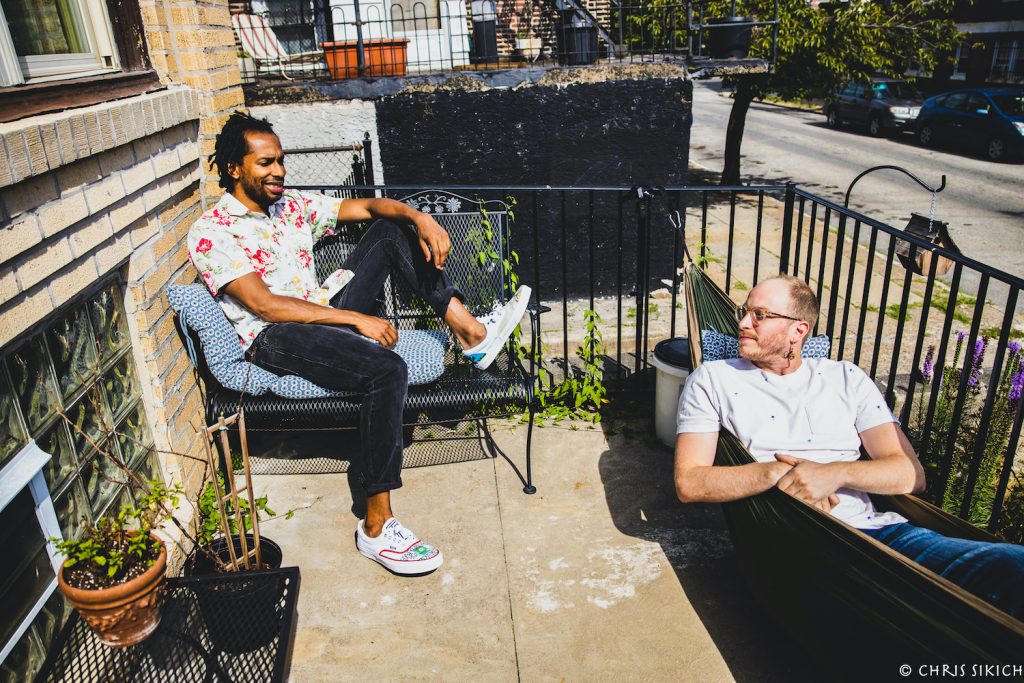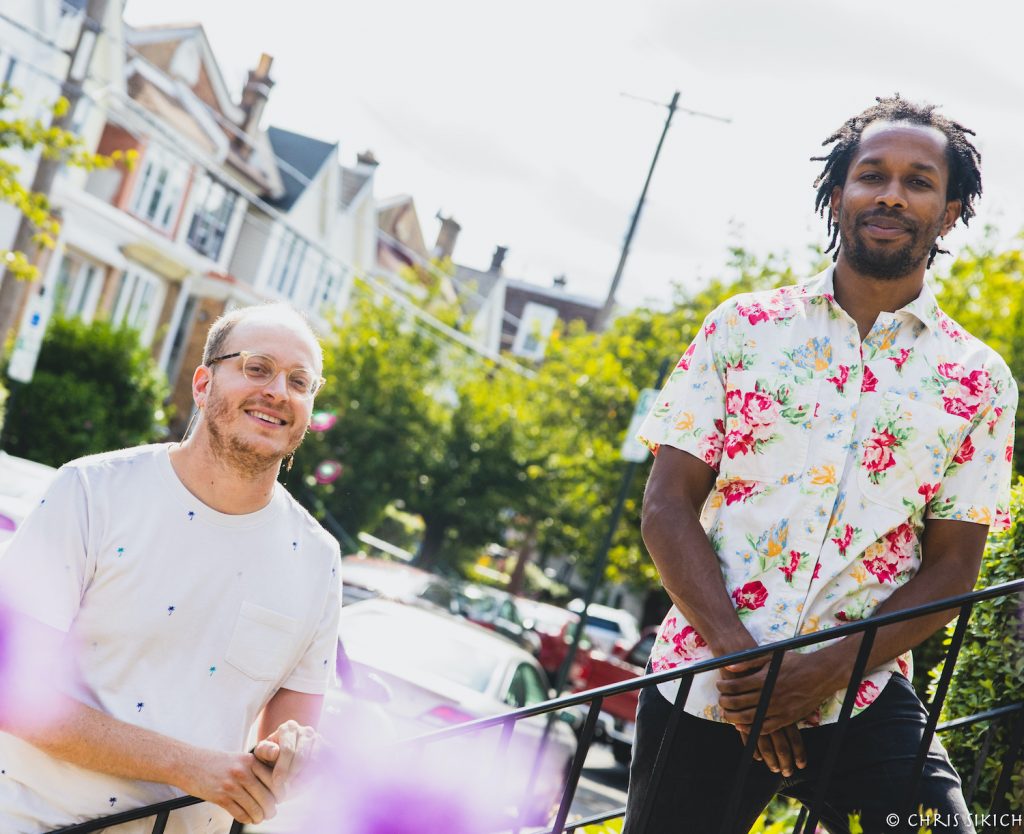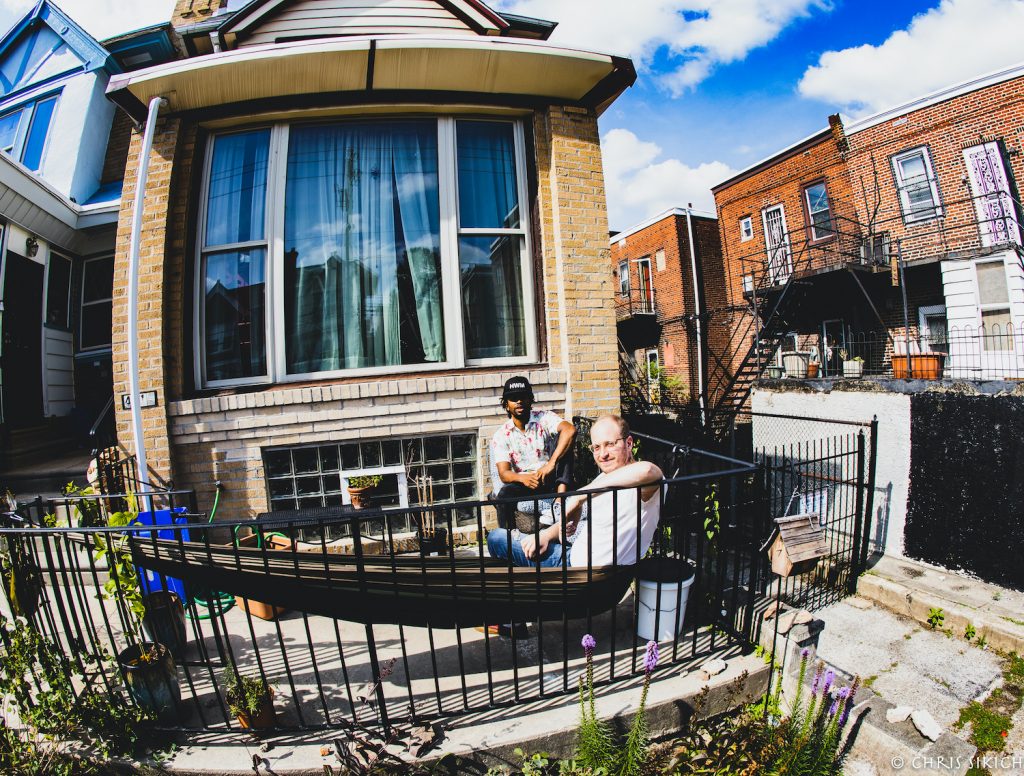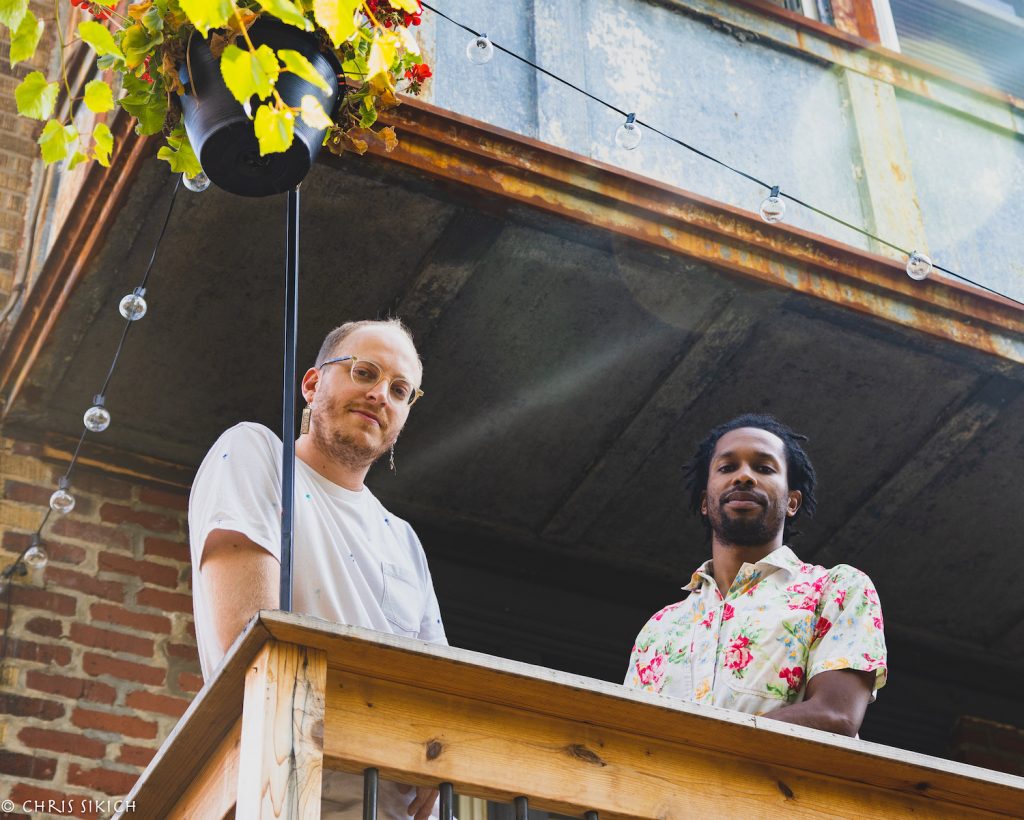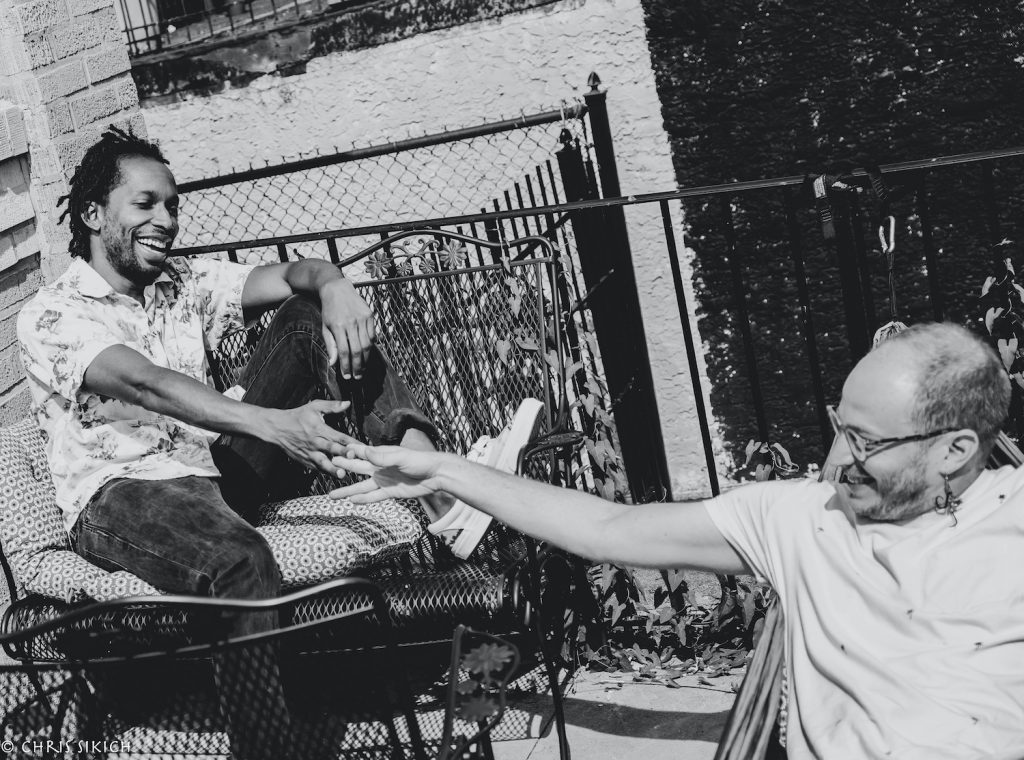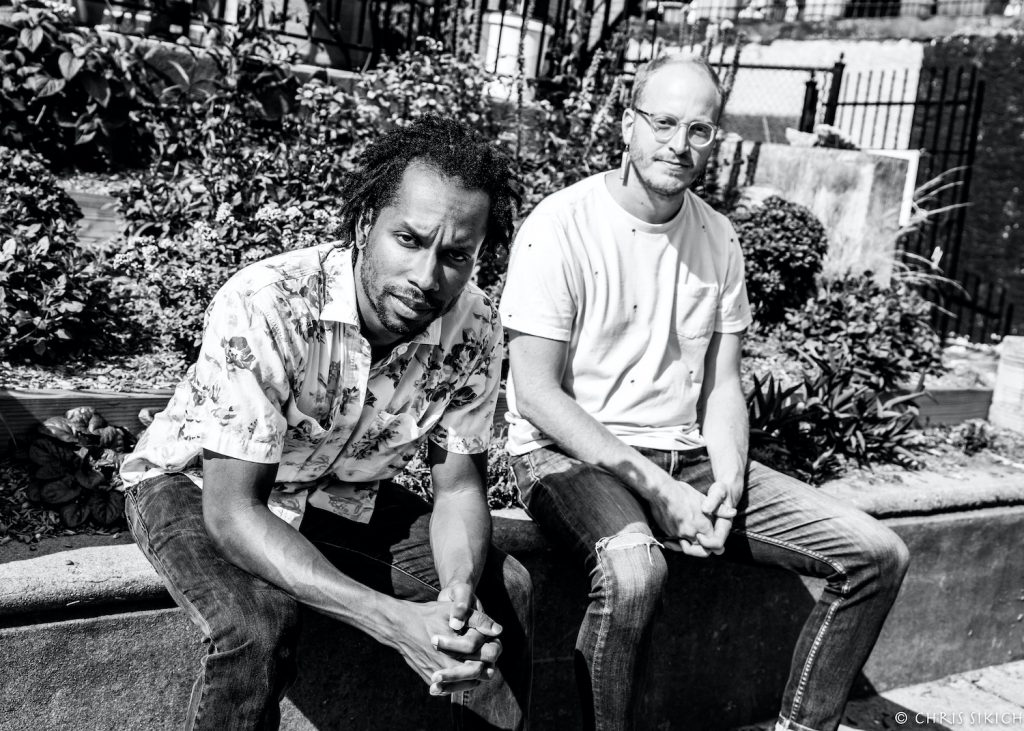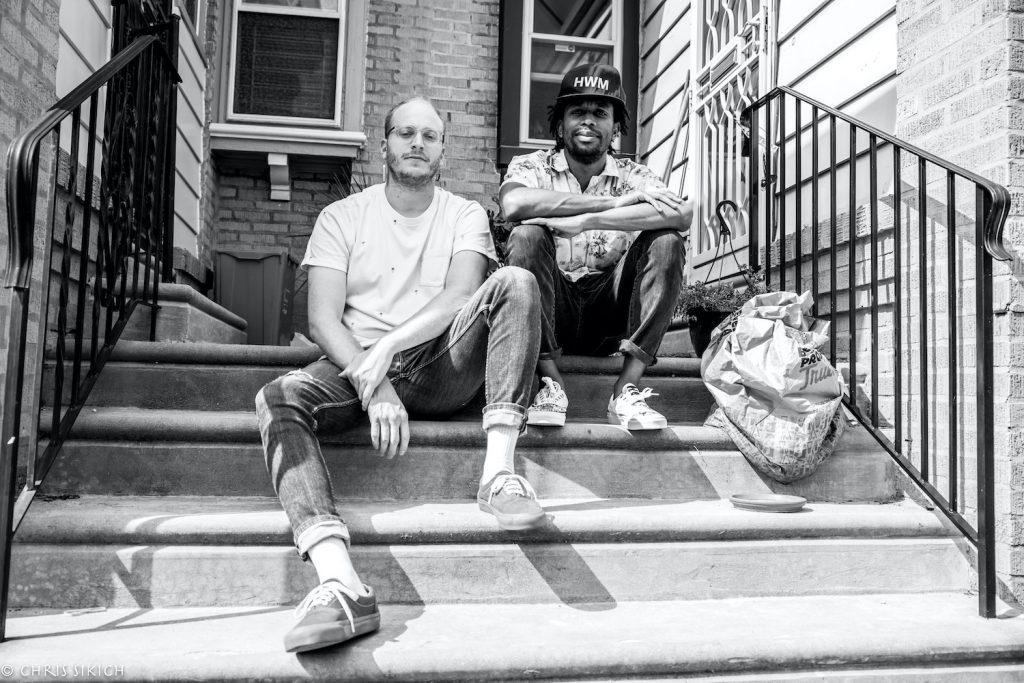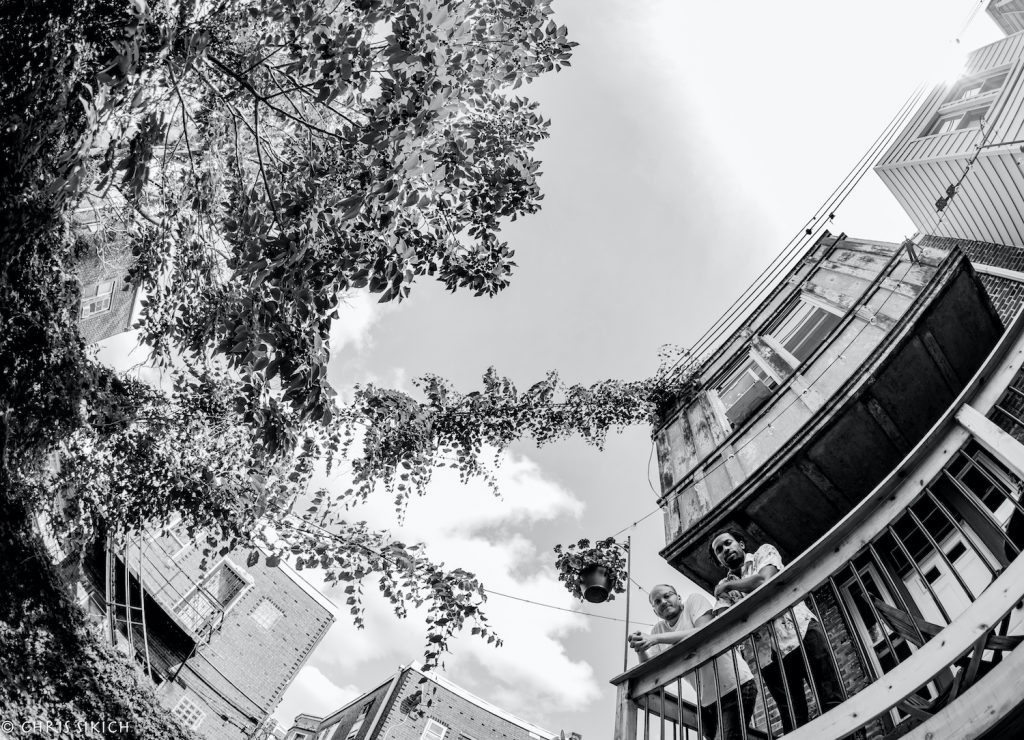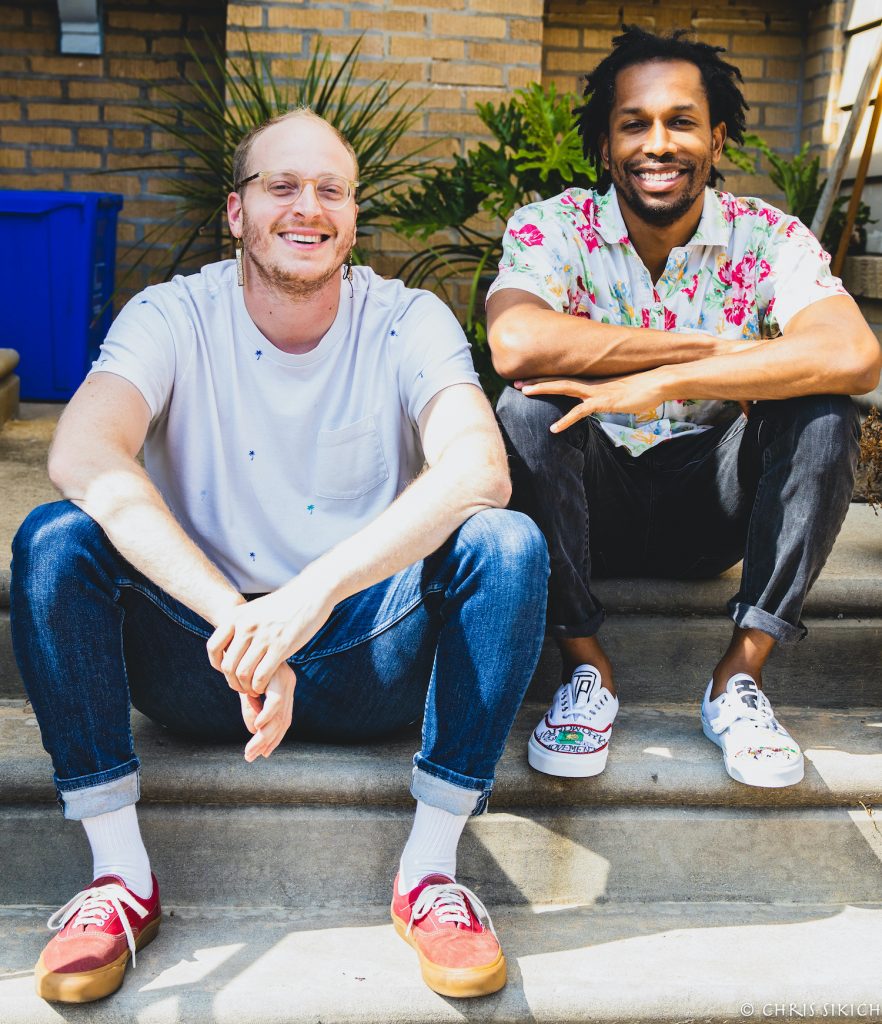
Like the majority of you, all of us in the Philadelphia area are staying at home, learning to adapt to our “new normal.” MAGNET is checking in with local musicians to see how and what they’re doing during this unprecedented time. Photos by Chris Sikich.
Sterling Duns: Martronmious, great to be here with you, typing across the room from you. How are you?
Marty “Martronimous” Gottlieb-Hollis: Hi, Duns. I’m good. It’s been a few minutes since I’ve seen you. Grateful for this opportunity to chat.
Duns: Me too, for sure. Was thinking maybe we could just ask each other a few questions. Go back and forth or something. How’s that sound to you?
Martronimous: Love it. Shoot.
Duns: Awesome. As you know, we’ve been in community together for years, through sharing a home to playing in bands. I’m curious to hear if your sense of community has changed during your life in quarantine? And if so, how?
Martronimous: It’s definitely changed. I don’t go to the bar(n) by myself nearly as much as I used to. But really, I think this time has just deepened my relationship with the people I lean on the most. I’m learning how to lean on them more and ask for support when I need it—still a work in progress. As an artist, I’m feeling the importance of collaboration as a form of community building more than ever. There was a moment when I needed to step out on my own as Martronimous in order to see myself more fully and have more of myself, but throughout quarantine, and especially during this time of uprising around racial justice, collaboration has felt really important, energizing and rich.
Duns: So much of that resonates with me, Martronimous.
Martronimous: I’m curious, Duns. What are some sources of joy that’ve gotten you through life in quarantine?
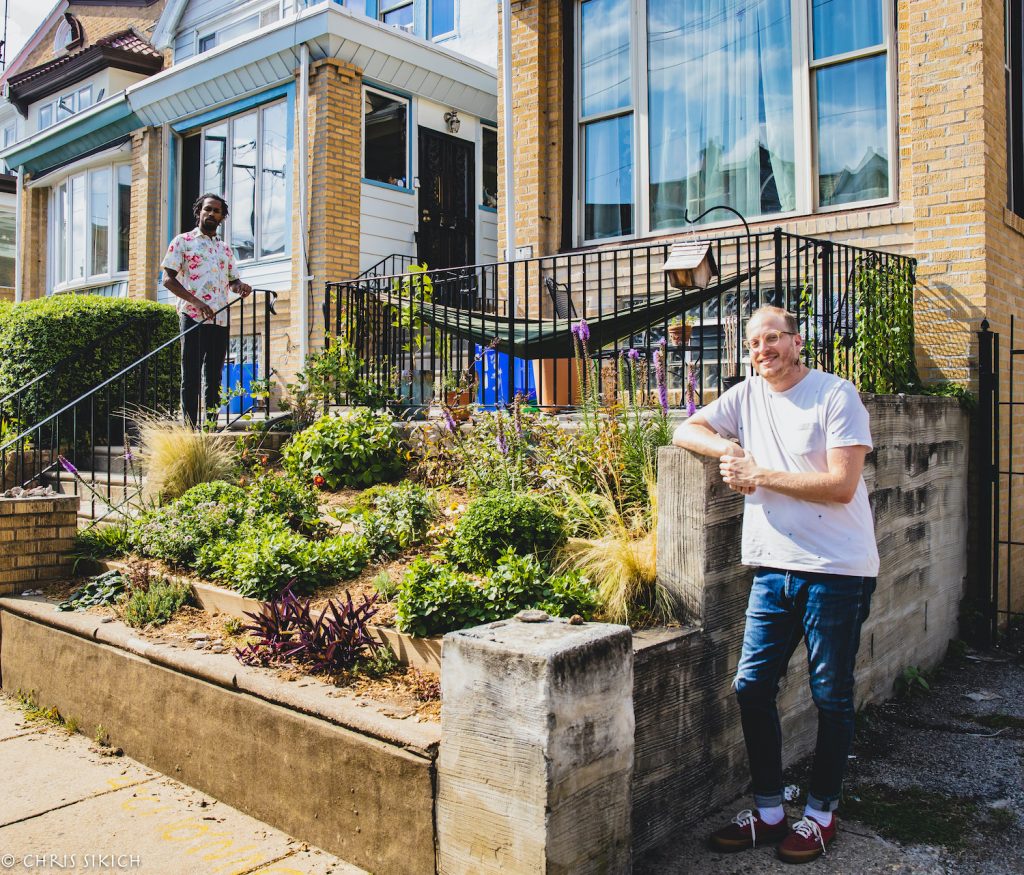
Duns: Cooking and eating meals and watching TV with my podmates, dreaming up and engaging in different creative projects with my best friend and partner, Sophie, deep belly-laugh convos with the homies on the phone or on Zoom, listening to podcasts and reading books. These are just a few. I’ve found that the moments of joy are that much more resonant because of the ways that confusion, pain, sadness, and despair have been present for me during this time. It definitely makes me even more grateful for the joyful moments, which allows me to tend to the hope I have deep in my heart that we will make it through.
Martronimous: I love that, and you’ve definitely cooked up some top five- meals in the ‘Rona.
Duns: Thanks, Martronimous. Another one for you: In this time where our country is asked to face its racial past with more honesty and bravery than ever before, what are the conversations/questions you’ve been grappling with?
Martronimous: Deep question. An important one for me has been looking at my position as a white artist in a Black art form (jazz, hip hop, Black American music generally). Can my work be healing and liberatory (my goals as an artist), or am I just taking up space? Where I’m at right now, I think the best thing I can do is to show up to that very complex space, rife as it is with contradiction, with my best, fullest self. As long as white supremacy exists, it will be a murky, sometimes problematic place to be, but I think there’s more possibility for community building, healing and supporting Black lives from a space of collaboration than of exiting the conversation. Jazz and hip hop are the most meaningful art forms that I know of. They are rooted in the liberation of Black people. They are America’s music. Though I’m white, half-Jewish/half-Christian, of European ancestry, this is the music I grew up listening to and loving. A continual question for me will be how to participate in a way that creates space for and supports Black people. Believing that I can participate and add value goes hand in hand with my hopes and dreams of ending white supremacy and building a liberatory, abundant future where we can all show up fully, safely, healed.
Duns: [Takes a breath] Just going to breathe that one in, Martronimous. Appreciate you sharing.
Martronimous: I’m honored to be in it with you, as a friend and a creative partner. You’re my hero and a source of great inspiration, so I’m curious what you think your role is as a creative in this moment on earth?
Duns: I think one of my big roles is to center my own healing and support others in their healing journeys. Though I’ve not produced a ton of music during my time in quarantine, I’ve felt very artful and creative over the last four months in dreaming up and designing different workshops and community-building series centered on healing, interdependence and taking action, all in the hopes of creating a more healed world for the next generations. I am currently in the midst of co-facilitating two different five-part series, one called Interwoven: A Black And Asian Community Building Series, and the other called Reclaiming Closeness. Both have been incredibly healing spaces for me and, I hope, for others. In Interwoven, 26 folks of African and Asian heritage get to share stories and art, explore the ways we’ve been hurt across our racial identities, explore the set up by this country to pit our two communities against one another and dream toward a world where Black folks and Asian folks are healed and whole and in deep relationship with one another. In Reclaiming Closeness, a group of 25-plus folks across the gender spectrum have been looking at how toxic masculinity has impacted the ways boys and men are encouraged or discouraged to show and feel the range of human emotions (anger, sadness, tenderness, kindness, empathy, etc.), the impact this socialization has on the women and femmes in our communities, and envisioning a world without gender-based violence. I feel so blessed for these two creative healing spaces, the co-facilitators and all of the participants.
Martronimous: Yes. That’s powerful work. Any spots open in the Black and Asian series?
Duns: Not for you.
Martronimous: Right.
Duns: [Shakes head, with a grin on his face] You obviously haven’t learned everything, but knowing what you know now in the pandemic, what would you tell yourself from week one of quarantine?
Martronimous: I would tell them to have faith, and that you’re at least going to make it to week 17 to record a hot video with Duns. Honestly though I’m not sure what I could’ve said to prepare myself for this moment in time. It’s a paradigm shift. Maybe that newness will still exist, can exist, and so will sameness; that there will be opportunities to explore other creative mediums (photography, making videos) and to really figure out what matters to you as a person and as an artist. Another way of saying that is, your stuff will get kicked up, and your wounds will be uncovered, but you’ll have real choices around this. And the chance to heal and grow as a result.
Duns: Truth, Martronimous. You’re a real inspiration for me around healing and growing.
Martronimous: Thanks, Duns. We do a lot of healing and growing together. Speaking of which, I’ve got one more for you. How are you so cool, calm and collected during our fights?
Duns: Am I cool?! Ha. I appreciate that, Martronimous. I know I sometimes get heated in our arguments, and I appreciate the way you hold space for it, and please know, I’m always trying to bring more love and understanding to our conflicts. And also, do the dang dishes! I’m really interested in how we, as a culture, learn more tools, skills and techniques to support us in conflict. I don’t think we are very good at conflict as a society, and as a product of society and my environments, I learned some different strategies and techniques that helped me early and often in my life. I am grateful those things have supported me to get here today. And, I don’t think the same strategies and techniques I learned early will be of much help in this next chapter of my life in supporting me to live out my vision of a more healed, whole, just world that has more space for healing, wholeness and justice in my own and all of our relationships. I know I need to be practicing a different way of being and showing up in my relationships if I am to expect there to be a society that responds differently to conflict, disagreement, harm and violence. I have learned a lot through my relationships, teachers, workshops and readings about how much healing there is for me to claim by learning to navigate conflict more skillfully. Thank you for letting our relationship be a place for learning and growth, failures and successes, all on the road to collective liberation. I’m forever grateful. Love you, Martronimous.
Martronimous: Love you, Duns! The feeling is mutual. I’ll get on those dishes.


